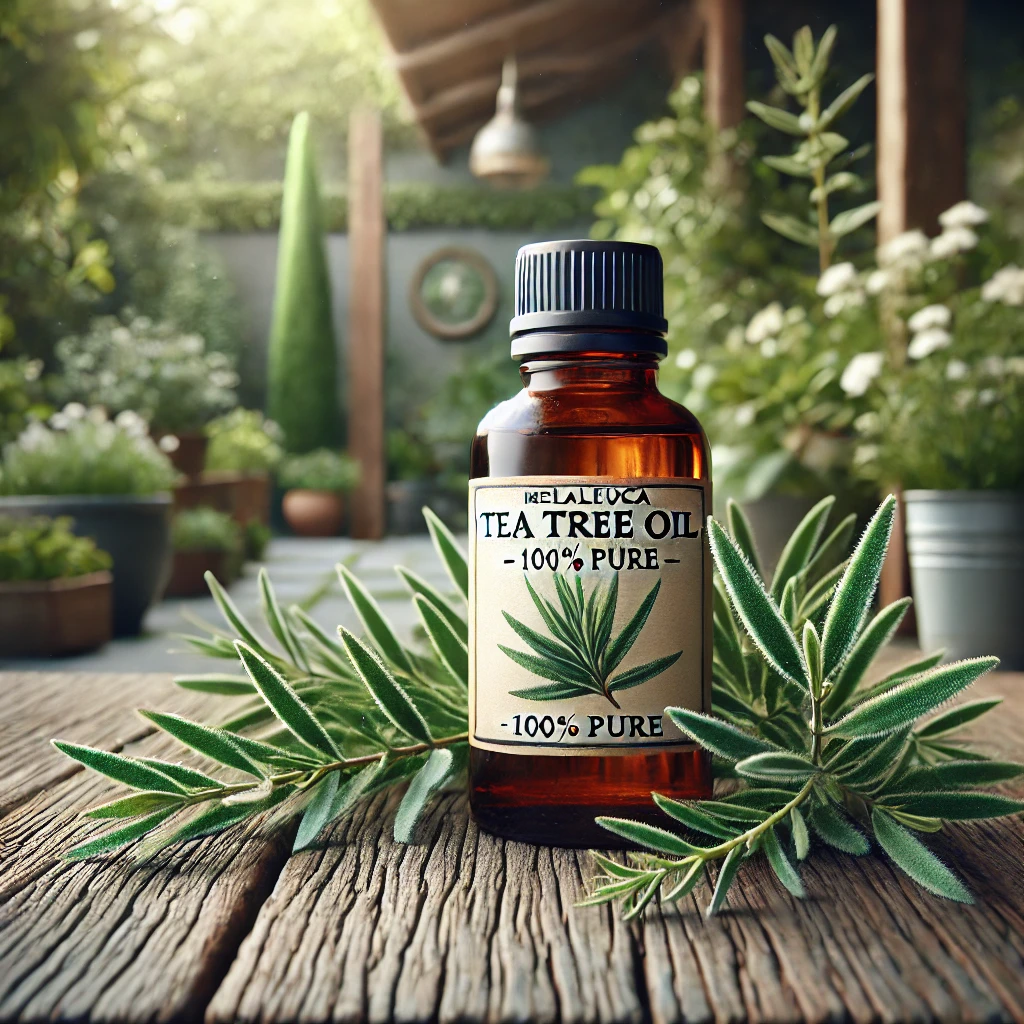Rosemary oil is an essential oil that is derived from the aromatic herb, rosemary, which is well-known for its culinary and medicinal uses. However, many organic gardeners are now discovering the incredible benefits and uses of rosemary oil.
This potent oil not only enhances plant health but also serves as a natural remedy for common garden challenges. By incorporating rosemary oil into your gardening routine, you can create a thriving, chemical-free garden environment.
- Rosemary oil acts as a natural pest repellent.
- It has antifungal properties that prevent plant diseases.
- Stimulates and enhances plant growth.
- Improves overall soil health and fertility.
Uses of Rosemary Oil in Organic Gardening
Pest Control Spray
One of the primary uses of rosemary oil is as a natural pest control spray. Rosemary oil is known for its potent aroma, which effectively repels many common garden pests such as aphids, spider mites, and whiteflies.
Recipe for Pest Control Spray
Ingredients:
- 2 cups of water
- 1 teaspoon of rosemary oil
- 1 teaspoon of mild liquid soap
Instructions:
- Mix the water, rosemary oil, and liquid soap in a spray bottle.
- Shake well to combine.
- Spray directly onto the affected plants, focusing on the undersides of leaves where pests often hide.
Application Frequency:
- Apply every 5-7 days until the pest problem is under control.
- For prevention, apply once every 2-3 weeks.
Fungicide Treatment
Rosemary oil’s antifungal properties make it an excellent natural fungicide. It can help prevent and treat various fungal diseases, such as powdery mildew and black spot, which commonly affect garden plants.
Preparing and Applying Rosemary Oil Fungicide
Ingredients:
- 1 quart of water
- 1 teaspoon of rosemary oil
- 1 teaspoon of baking soda
Instructions:
- Mix the water, rosemary oil, and baking soda in a spray bottle.
- Shake well to ensure the ingredients are thoroughly combined.
- Spray the solution on affected plants, covering both sides of the leaves.
Application Instructions:
- Apply early in the morning or late in the evening to avoid the sun’s heat.
- Use once a week until the fungal issue is resolved.
Plant Growth Enhancer
Another significant use of rosemary oil is as a plant growth enhancer. The oil contains compounds that can stimulate plant growth and improve overall plant vigor.
Methods of Applying Rosemary Oil for Growth Enhancement
Foliar Spray:
Ingredients:
- 1 quart of water
- 10 drops of rosemary oil
Instructions:
- Mix the water and rosemary oil in a spray bottle.
- Shake well and spray on plant leaves, focusing on the undersides.
- Apply once a month for optimal results.
Soil Drench:
Ingredients:
- 1 gallon of water
- 1 teaspoon of rosemary oil
Instructions:
- Mix the water and rosemary oil.
- Pour the mixture at the base of the plants.
- Repeat every 4-6 weeks to promote root growth and plant health.
Soil Amendment
Incorporating rosemary oil into the soil can enhance its health and fertility, benefiting the entire garden ecosystem. The oil helps maintain a balanced microbial environment, which is crucial for nutrient absorption and overall plant health.
How to Incorporate Rosemary Oil into Soil
Ingredients:
- 1 gallon of water
- 1 teaspoon of rosemary oil
Instructions:
- Mix the rosemary oil with water in a watering can.
- Water the soil around your plants with this solution.
- Apply every 4-6 weeks for best results.
Additional Uses
Seed Treatment
Soaking seeds in a rosemary oil solution before planting can protect them from fungal infections and boost germination rates.
Instructions:
- Mix 1 quart of water with 5 drops of rosemary oil.
- Soak seeds in the solution for a few hours before planting.
Compost Booster
Adding a few drops of rosemary oil to your compost pile can speed up decomposition and enrich the compost.
Instructions:
- Add 5-10 drops of rosemary oil to your compost pile.
- Turn the compost regularly to distribute the oil evenly.
Safety Tips and Precautions
Proper Dilution
When using rosemary oil, it’s essential to dilute it properly to prevent potential harm to plants and beneficial insects. Pure rosemary oil is highly concentrated and can cause leaf burn or other damage if applied undiluted.
Recommended Dilution Ratios:
- For foliar sprays: 10-15 drops of rosemary oil per quart of water.
- For soil drench: 1 teaspoon of rosemary oil per gallon of water.
Application Safety
To ensure safe application, gardeners should follow specific safety protocols. Always wear protective gear such as gloves and eye protection when handling and applying rosemary oil solutions.
Protective Gear:
- Gloves to protect your hands from direct contact.
- Eye protection to prevent irritation.
Environmental Considerations
While rosemary oil is generally safe for the environment, it’s important to apply it in a way that minimizes any potential negative impacts.
Avoid Overuse:
- Excessive application can harm beneficial insects and microorganisms.
- Apply only as needed and follow recommended frequencies.
- Apply early in the morning or late in the evening to avoid direct sunlight and reduce the risk of plant stress.
Storage and Shelf Life
Proper storage of rosemary oil is crucial to maintain its efficacy and safety.
Storage Tips:
- Store rosemary oil in a cool, dark place.
- Keep the bottle tightly closed when not in use to prevent oxidation.
Shelf Life:
- Rosemary oil typically has a shelf life of about one year.
- Signs of degradation include changes in color, consistency, or odor.
Sensitive Plants
Some plants may be more sensitive to essential oils, including rosemary oil. Delicate plants with thin leaves or those prone to leaf burn should be treated with caution.
- Ferns
- Some types of ornamental flowers (e.g., impatiens, begonias)
- Young seedlings and newly transplanted plants
Safe for Most Edible Plants
Most edible plants, including herbs, vegetables, and fruits, can safely benefit from the use of rosemary oil. It is especially effective for pest control and fungal prevention on these plants.
Monitoring and Adjusting
Continuous monitoring is essential when using rosemary oil. Observe your plants for any signs of distress, such as leaf discoloration or wilting, and adjust the application method or dilution as necessary.
Signs to Watch For:
- Yellowing or browning of leaves
- Wilting or drooping
- Spots or burn marks on leaves
FAQs about Rosemary Oil in Organic Gardening
How often should I apply rosemary oil to my plants?
Rosemary oil can be applied every 5-7 days for pest control until the problem is under control. For preventive measures, applying once every 2-3 weeks is sufficient. Always monitor your plants and adjust the frequency if needed.
Can rosemary oil harm beneficial insects?
While rosemary oil is generally safe for most beneficial insects, it can still affect some if used excessively. To minimize harm, apply rosemary oil during early morning or late evening when beneficial insects are less active and use the oil sparingly.
Is rosemary oil safe for all types of plants?
Rosemary oil is safe for most plants when properly diluted, but sensitive plants like ferns and some ornamentals may react negatively. Always perform a spot test on a small area before widespread application and observe for any adverse reactions.
How do I know if I’m using too much rosemary oil?
Signs of overuse include leaf discoloration, browning, or wilting. If you notice these symptoms, reduce the concentration of the rosemary oil solution and apply less frequently.
Can I use rosemary oil indoors?
Yes, rosemary oil can be used indoors for houseplants. Ensure proper ventilation when applying the oil and use a diluted solution to avoid any potential damage to the plants or strong lingering odors.
Does rosemary oil expire?
Yes, rosemary oil typically has a shelf life of about one year. Store it in a cool, dark place with the bottle tightly closed. Signs of degradation include changes in color, consistency, or odor.
How do I prepare a rosemary oil pest control spray?
To make a pest control spray, mix 2 cups of water with 1 teaspoon of rosemary oil and 1 teaspoon of mild liquid soap in a spray bottle. Shake well and apply directly to affected plants, focusing on the undersides of leaves.
Can rosemary oil be used as a soil drench?
Yes, rosemary oil can be used as a soil drench to improve soil health. Mix 1 teaspoon of rosemary oil with 1 gallon of water and pour the solution at the base of the plants. Repeat every 4-6 weeks for best results.
What fungal diseases can rosemary oil help prevent?
Rosemary oil has antifungal properties that can help prevent and treat diseases like powdery mildew, black spot, and other common fungal infections in plants. Apply a diluted rosemary oil solution weekly until the issue is resolved.
Can rosemary oil enhance plant growth?
Yes, rosemary oil can act as a plant growth enhancer. It contains compounds that stimulate growth and improve plant vigor. Use a diluted solution as a foliar spray or soil drench to promote healthy growth.













